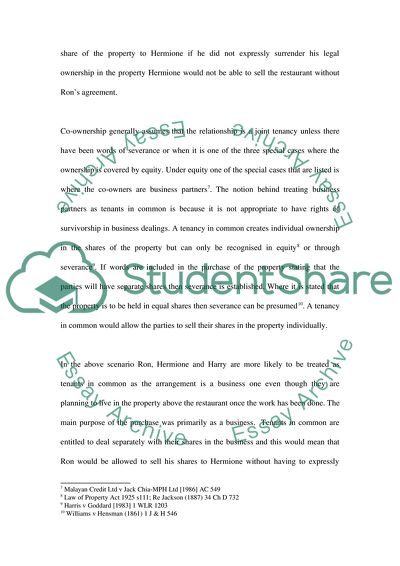Cite this document
(Property Law and Co-Ownership Essay Example | Topics and Well Written Essays - 2000 words, n.d.)
Property Law and Co-Ownership Essay Example | Topics and Well Written Essays - 2000 words. Retrieved from https://studentshare.org/law/1706859-226-property-law
Property Law and Co-Ownership Essay Example | Topics and Well Written Essays - 2000 words. Retrieved from https://studentshare.org/law/1706859-226-property-law
(Property Law and Co-Ownership Essay Example | Topics and Well Written Essays - 2000 Words)
Property Law and Co-Ownership Essay Example | Topics and Well Written Essays - 2000 Words. https://studentshare.org/law/1706859-226-property-law.
Property Law and Co-Ownership Essay Example | Topics and Well Written Essays - 2000 Words. https://studentshare.org/law/1706859-226-property-law.
“Property Law and Co-Ownership Essay Example | Topics and Well Written Essays - 2000 Words”. https://studentshare.org/law/1706859-226-property-law.


